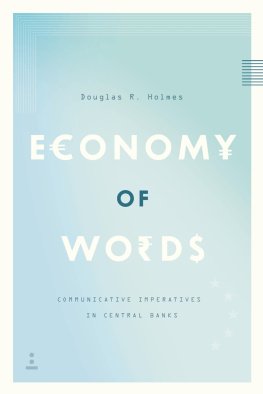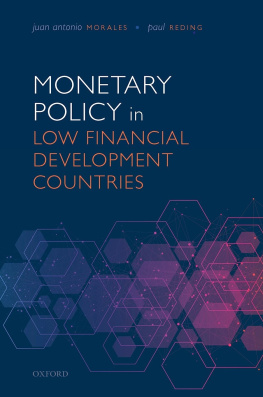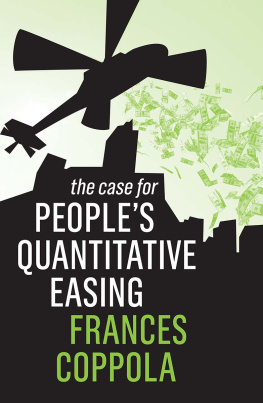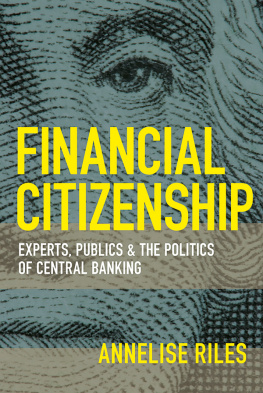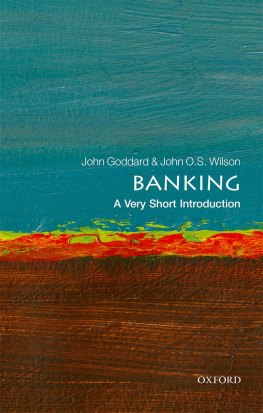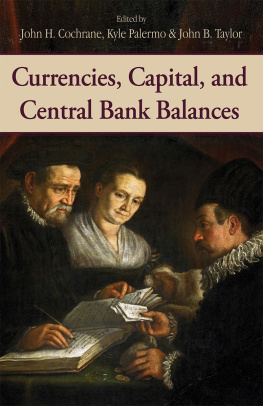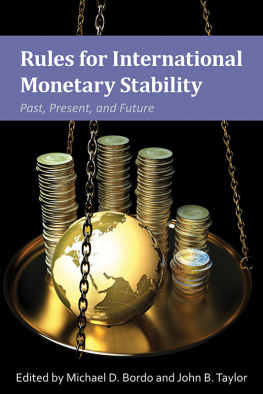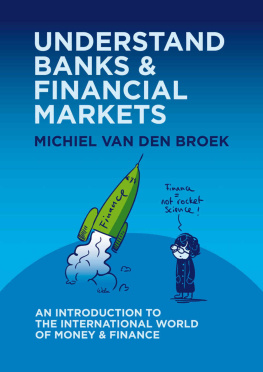Contents
Guide
Pages

The Future of Capitalism series
Steve Keen, Can We Avoid Another Financial Crisis?
Ann Lee, Will Chinas Economy Collapse?
Danny Dorling, Do We Need Economic Inequality?
Malcolm Sawyer, Can the Euro be Saved?
Chuck Collins, Is Inequality in America Irreversible?
Peter Dietsch, Franois Claveau and Clment Fontan, Do Central Banks Serve the People?
Do Central Banks Serve the People?
Peter Dietsch
Franois Claveau
Clment Fontan
polity
Copyright Peter Dietsch, Franois Claveau, Clment Fontan 2018
The right of Peter Dietsch, Franois Claveau, Clment Fontan to be identified as Author of this Work has been asserted in accordance with the UK Copyright, Designs and Patents Act 1988.
First published in 2018 by Polity Press
Polity Press
65 Bridge Street
Cambridge CB2 1UR, UK
Polity Press
101 Station Landing
Suite 300
Medford, MA 02155, USA
All rights reserved. Except for the quotation of short passages for the purpose of criticism and review, no part of this publication may be reproduced, stored in a retrieval system or transmitted, in any form or by any means, electronic, mechanical, photocopying, recording or otherwise, without the prior permission of the publisher.
ISBN-13: 978-1-5095-2578-2
A catalogue record for this book is available from the British Library.
Library of Congress Cataloging-in-Publication Data
Names: Dietsch, Peter, author. | Claveau, Franois, author. | Fontan, Clment.
Title: Do central banks serve the people? / Peter Dietsch, Franois Claveau, Clment Fontan.
Description: Cambridge, UK ; Medford, MA : Polity Press, 2018. | Series: The future of capitalism | Includes bibliographical references and index.
Identifiers: LCCN 2018001627 (print) | LCCN 2018002716 (ebook) | ISBN 9781509525805 (Epub) | ISBN 9781509525768 (hbk) | ISBN 9781509525775 (pbk)
Subjects: LCSH: Banks and banking, Central. | Monetary policy. | Banks and banking--Customer services.
Classification: LCC HG1811 (ebook) | LCC HG1811 .D545 2018 (print) | DDC 332.1/1--dc23
LC record available at https://lccn.loc.gov/2018001627
The publisher has used its best endeavours to ensure that the URLs for external websites referred to in this book are correct and active at the time of going to press. However, the publisher has no responsibility for the websites and can make no guarantee that a site will remain live or that the content is or will remain appropriate.
Every effort has been made to trace all copyright holders, but if any have been inadvertently overlooked the publisher will be pleased to include any necessary credits in any subsequent reprint or edition.
For further information on Polity, visit our website: politybooks.com
Acknowledgements
We are grateful to numerous colleagues for providing feedback on this project. Special thanks go to Romain Baeriswyl, Benjamin Braun, Boudewijn de Bruin, Josep Ferret Mas, Randall Germain and Pierre Monnin. Previous versions of the manuscript were presented at the Chaire Hoover at the Universit catholique de Louvain-la-Neuve, Erasmus Universiteit Rotterdam, University of Gothenburg, McGill University, Ottawa University and at the Centre de recherche en thique (CRE) in Montreal thank you to all participants in these events. We also thank Jrmie Dion for his invaluable research assistance. Finally, we are grateful for the comments from two anonymous referees as well as from our editor at Polity, George Owers. This research has been supported by the Social Sciences and Humanities Research Council of Canada (SSHRC), the Canada Research Chairs Program, the Fonds de Recherche du Qubec Socit et Culture (FRQSC), and the Wallenberg Foundation.
Introduction: Central Banks Ought to Serve the People
Central banks today could not make it any clearer: their sole legitimate purpose is to serve the public interest. Janet L. Yellen, chair of the US Federal Reserve until February 2018, states that [i]n every phase of our work and decisionmaking, we consider the well-being of the American people and the prosperity of our nation.
In the same 2014 speech, Carney emphasises that what it means to serve the people has shifted over time: In 1694 promoting the good of the people meant financing a war with France. as they took on more and more responsibilities to stabilise volatile and risky financial systems.
In this shifting landscape, can we be confident that what central banks do, and what they are asked to do, best serve the people? In particular, do central banks sufficiently take into account the side effects of their unconventional measures? Do they do enough to avoid another financial crisis? Should we trust central bankers when they intervene as experts in public debates? These are the questions at the heart of this book.
Situated at the interface between governments and financial markets, central banks are one cog in a complex institutional machinery, which has been built over the years to regulate the economy and promote the public interest. The functions given to this cog and its interactions with various other parts of the machinery have changed significantly over time. The current thinking about how central banks should serve the people mostly conforms to a template that spread like wildfire throughout the world in the 1990s. This template prescribes that the central bank should have narrow regulatory goals archetypally limited to price stability and that it should not coordinate with other parts of the machinery, especially not with the legislative and executive branches of the State.
This book is built on the premise that an in-depth evaluation of the role of central banks in society should not take this template as given. The increased importance of monetary policy in the macroeconomic toolkit since 2007 confers additional importance to this project. Our main contribution lies in defending the claim that, on three matters, central banks today do not seem to best serve the people in their monetary zone. In , we diagnose a conflict of interest inside central banks between two types of expertise they produce, which undermines the trust we can have in the information they provide on some topics. With these three concerns in mind, the concluding chapter indicates an array of policy alternatives that could make central banks better servants of the public.
Two conditions must be in place to productively discuss how central banks can best serve the people in the future. First, participants in the discussion must understand how central banking works. The next chapter aims to supply the essential elements of such an understanding to non-specialist readers. Second, participants must be ready to seriously entertain the possibility that the current institutional configuration is not optimal. This condition does not seem to be met today among the specialists on central banking, that is, professional economists. Ninety-four per cent of economists who participated in a recent survey agreed that it is desirable to maintain central bank independence in the future central bank independence being the phrase used among specialists to describe how the central bank as a cog currently relates to other parts of the institutional machinery. This book argues that this conventional wisdom needs to be revisited in light of the recent dramatic changes both in how the financial side of a modern economy works and concerning the policy instruments employed by central banks.
Notes
... Ibid., 5...


